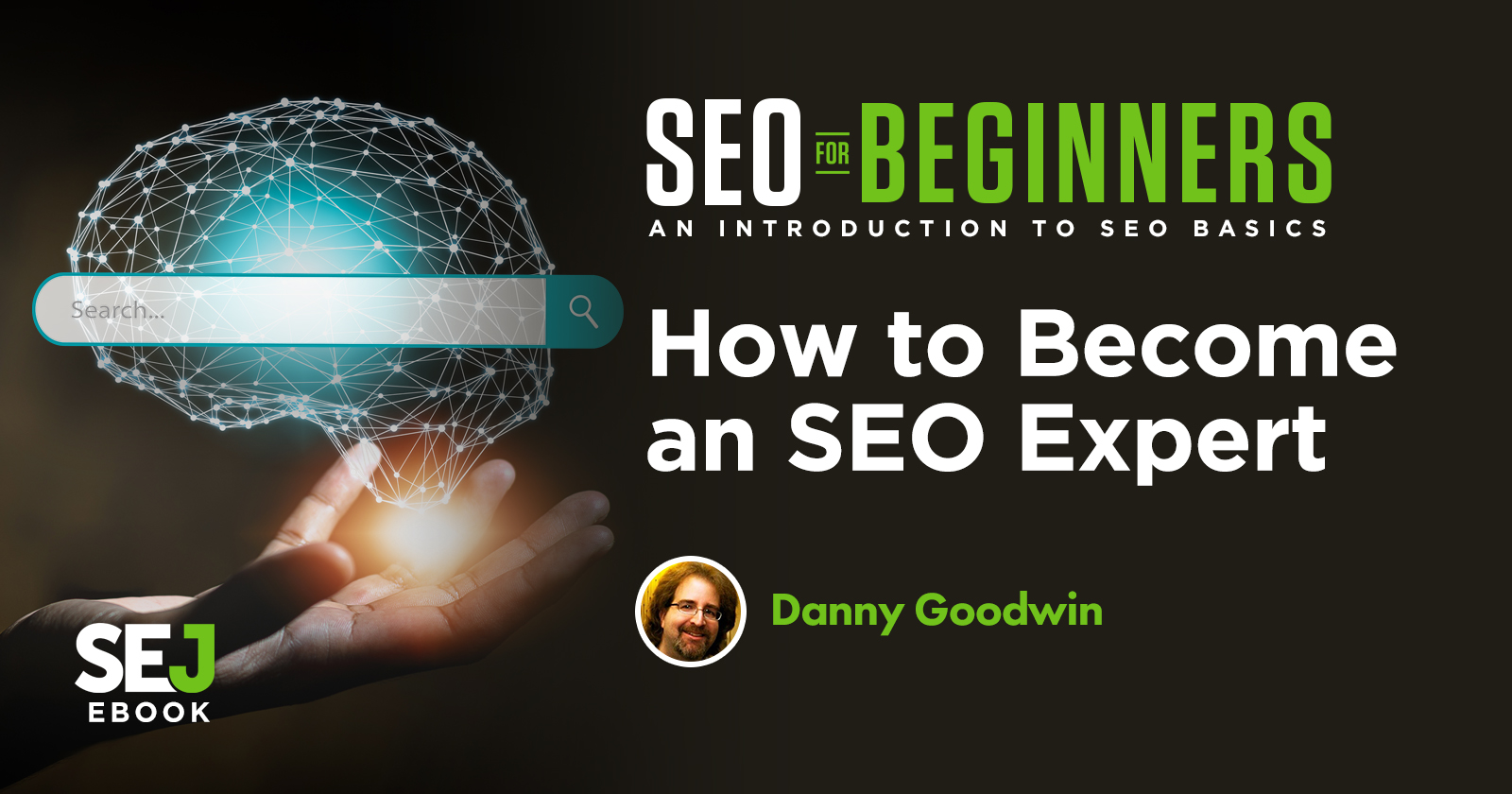Become an SEO expert by mastering keyword research, on-page and off-page optimization, staying updated on algorithms, analyzing data, and continuously refining your strategies.
SEO, or Search Engine Optimization, is crucial for online visibility. It helps websites rank higher on search engines, driving more traffic. The field of SEO is ever-evolving, with new algorithms and trends emerging regularly. To excel, you need to understand the basics and stay updated.
This guide will help you navigate the complex world of SEO. You’ll learn essential skills, best practices, and advanced techniques. By following this path, you can become proficient and build a strong online presence. Let’s dive into the journey of becoming an SEO expert, step by step.

Credit: www.linkedin.com
Keyword Research
Keyword research is the foundation of a successful SEO strategy. It helps you understand what your audience is searching for, allowing you to create content that meets their needs and ranks well in search engines. This section will guide you through the process of finding the right keywords and using keyword tools effectively.
Finding The Right Keywords
Identifying the right keywords is crucial. You need to think about what terms your audience might use. Start by brainstorming a list of words and phrases related to your topic. These should be terms that are relevant and specific.
Consider using the following strategies:
- Check your competitors’ websites for ideas.
- Think about variations and synonyms of your main keywords.
- Use Google’s autocomplete feature to find common search queries.
Once you have a list of potential keywords, you need to evaluate their effectiveness. Look at the search volume, competition, and relevance of each keyword.
Using Keyword Tools
Keyword tools can help you refine your list and find new ideas. They provide data on search volume, competition, and other metrics.
Some popular keyword tools include:
- Google Keyword Planner
- Ahrefs Keywords Explorer
- SEMrush
- Ubersuggest
These tools allow you to see how often a keyword is searched for and how difficult it might be to rank for it. They also suggest related keywords you might not have considered.
Here is a simple comparison table of these tools:
| Tool | Free/Paid | Main Features |
|---|---|---|
| Google Keyword Planner | Free | Search volume, competition, keyword ideas |
| Ahrefs Keywords Explorer | Paid | Comprehensive keyword data, competitor analysis |
| SEMrush | Paid | Keyword research, site audit, competitor analysis |
| Ubersuggest | Free/Paid | Keyword ideas, search volume, SEO difficulty |
Using these tools, you can find the best keywords for your content. This will help you create targeted and effective SEO strategies.
On-page Optimization
On-page optimization is a crucial part of SEO. It involves tweaking various elements on your website to improve its search engine ranking. This process ensures that your content is relevant and valuable to users. Let’s explore some key aspects of on-page optimization.
Optimizing Content
High-quality content is the backbone of on-page optimization. Focus on creating valuable, informative, and engaging content. Use clear and concise language to make it easy to understand. Incorporate relevant keywords naturally within your content. This helps search engines understand what your page is about. Avoid keyword stuffing, as it can harm your ranking. Instead, aim for a balance between readability and keyword usage. Use headings and subheadings to organize your content. This improves the user experience and makes your content more accessible.
Meta Tags And Descriptions
Meta tags and descriptions play a vital role in on-page SEO. They provide search engines with information about your page. The title tag should include your main keyword. Keep it under 60 characters for best results. The meta description should be a brief summary of your page’s content. Aim for around 150-160 characters. Include your main keyword here as well. A well-crafted meta description can increase your click-through rate. Use unique meta tags and descriptions for each page. This helps search engines distinguish between different pages on your site.
Technical Seo
Technical SEO is the backbone of any successful SEO strategy. It involves optimizing the infrastructure of your website to ensure search engines can crawl and index it efficiently. This section will cover two critical aspects of Technical SEO: Site Speed and Performance and Mobile Optimization.
Site Speed And Performance
Site speed is crucial for both user experience and search engine rankings. A fast-loading site keeps users engaged and reduces bounce rates. Here are some key points to consider:
- Compress Images: Use tools like TinyPNG to reduce image file sizes.
- Enable Browser Caching: Store static files to speed up repeat visits.
- Minify CSS and JavaScript: Remove unnecessary code to improve load times.
- Use a Content Delivery Network (CDN): Distribute content across multiple servers globally.
Consider using tools like Google PageSpeed Insights to check your site’s performance. The tool will provide specific suggestions for improvement.
Mobile Optimization
Mobile optimization ensures your site works well on smartphones and tablets. Over 50% of web traffic comes from mobile devices. Thus, optimizing for mobile is essential.
- Responsive Design: Ensure your site adapts to different screen sizes.
- Fast Mobile Load Times: Implement Accelerated Mobile Pages (AMP) for quicker load times.
- Touch-Friendly Navigation: Make buttons and links easy to tap.
- Readable Fonts: Use legible fonts and sizes for mobile screens.
Test your site’s mobile friendliness using Google’s Mobile-Friendly Test tool. The tool will highlight areas that need improvement.
| Technical SEO Aspect | Action | Tool |
|---|---|---|
| Site Speed | Compress Images | TinyPNG |
| Site Speed | Enable Browser Caching | Google PageSpeed Insights |
| Mobile Optimization | Responsive Design | Google Mobile-Friendly Test |
| Mobile Optimization | Fast Mobile Load Times | AMP |
Link Building
Link building is a crucial aspect of SEO. It helps search engines understand your website’s authority and relevance. By earning quality backlinks, your site can rank higher in search results. Let’s explore how to build links effectively.
Earning Backlinks
Backlinks are links from other websites to your site. Quality backlinks can improve your site’s authority. First, create valuable content. People share and link to content they find useful. Write blog posts, infographics, or research articles. Make sure your content is original and well-researched.
Next, reach out to other websites. Send polite emails to site owners. Ask them to link to your content. Explain why your content is valuable to their audience. Join online communities. Participate in forums related to your niche. Share your content where it is relevant.
Using Social Media
Social media can help in link building. Share your content on different platforms. Use Facebook, Twitter, LinkedIn, and others. Engage with your audience. Respond to comments and questions. This increases your content’s visibility. More visibility means more chances of getting backlinks.
Also, connect with influencers in your niche. Influencers have a large following. They can share your content with their audience. This can lead to more backlinks. Build good relationships with influencers. Offer them value in return.
Content Strategy
To become an expert in SEO, you need a solid content strategy. This strategy ensures your content is valuable, relevant, and visible. Let’s dive into the key elements of an effective content strategy.
Creating Valuable Content
Valuable content is at the heart of SEO success. It helps attract and retain your audience. Here’s how to create it:
- Understand Your Audience: Know their needs and preferences.
- Keyword Research: Use tools to find relevant keywords.
- Engaging Titles: Create catchy and descriptive titles.
- High-Quality Content: Ensure your content is informative and well-written.
- Visuals: Use images, videos, and infographics to enhance understanding.
Remember, consistent posting is crucial. Regular updates keep your audience engaged and improve your site’s ranking.
Content Promotion
Creating content is just the first step. Promoting it effectively is equally important.
Consider these methods:
- Social Media: Share your content on platforms like Facebook, Twitter, and LinkedIn.
- Email Marketing: Send newsletters to your subscribers.
- Guest Blogging: Write for other blogs to reach new audiences.
- Influencer Outreach: Collaborate with influencers in your niche.
- SEO Optimization: Ensure your content is optimized for search engines.
Promotion increases your content’s reach. It drives traffic to your site, enhancing your SEO efforts.
By focusing on creating valuable content and promoting it effectively, you can improve your SEO expertise.

Credit: www.simplilearn.com
Analytics And Monitoring
Analytics and monitoring are crucial for becoming an SEO expert. They help you understand your website’s performance and make informed decisions. By tracking key metrics, you can spot trends and optimize your SEO strategy effectively.
Tracking Seo Performance
Tracking SEO performance involves observing various metrics. These include organic traffic, bounce rate, and conversion rates. Keep an eye on keyword rankings and backlink profiles too. Regularly check these metrics to gauge your SEO efforts. This helps in identifying what works and what needs improvement.
Using Google Analytics
Google Analytics is a powerful tool for monitoring SEO. It provides detailed insights into website traffic and user behavior. Set up Google Analytics by adding a tracking code to your site. This tool helps you see where your traffic comes from and how users interact with your site.
Use Google Analytics to track important metrics. Look at sessions, page views, and average session duration. Pay attention to the sources of your traffic. Identify which keywords bring the most visitors. Analyze the behavior flow to understand user navigation. This helps in spotting any obstacles that users face.
Utilize Google Analytics’ goals feature. Set up goals to track specific actions, like form submissions or purchases. This provides a clear picture of your conversion rates. It helps in measuring the success of your SEO strategies. Adjust your tactics based on these insights for better results.
Advanced Seo Techniques
Becoming an expert in SEO involves mastering advanced techniques. These strategies can set you apart in the digital world. They improve your site’s visibility and user experience. Let’s explore some of these advanced methods.
Voice Search Optimization
Voice search is growing fast. More people use voice assistants like Siri and Alexa. Optimizing for voice search can boost your traffic. Use natural language and long-tail keywords.
Here are some tips:
- Focus on question phrases.
- Use conversational language.
- Ensure your site loads quickly.
- Optimize for mobile devices.
Local Seo Strategies
Local SEO is key for businesses targeting local customers. Optimizing your site for local searches can increase your visibility. Ensure your business is listed on Google My Business.
Follow these strategies:
- Include local keywords in your content.
- Ensure your contact information is consistent.
- Get positive reviews from customers.
- Create localized content.
Here’s a quick table for better understanding:
| Technique | Details |
|---|---|
| Voice Search Optimization | Use natural language and long-tail keywords. |
| Local SEO Strategies | List your business on Google My Business. |

Credit: www.searchenginejournal.com
Frequently Asked Questions
What Is Seo Expertise?
SEO expertise involves mastering techniques to improve website visibility. It includes keyword research, on-page, and off-page optimization. Continuous learning is essential.
How Long To Become An Seo Expert?
Becoming an SEO expert typically takes 6 months to 2 years. It depends on dedication, practice, and continuous learning.
What Skills Are Needed For Seo?
Essential SEO skills include keyword research, content creation, analytics, and link building. Familiarity with SEO tools is also crucial.
Can I Learn Seo For Free?
Yes, you can learn SEO for free. Numerous online resources, blogs, and courses are available. Practice is key.
Conclusion
Becoming an SEO expert takes time and effort. Start with the basics. Learn about keywords, on-page SEO, and backlinks. Practice regularly and keep updated with trends. Use tools like Google Analytics. Join SEO communities for advice and support. Patience and persistence are key.
Experiment and analyze your results. Over time, you will see improvement. Stay curious and never stop learning. Your journey to becoming an SEO expert is ongoing. Keep pushing forward, and success will follow.

